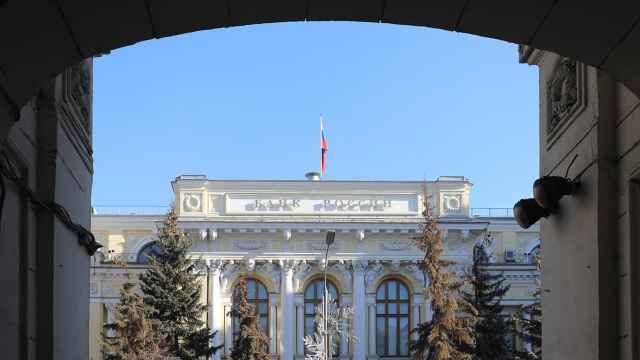Buffets and excursions around Moscow won't make government workers better at placing state orders.
Two-thirds of the tenders for state orders are made by unqualified workers, according to an International Center of Financial-Economic Development study.
"People are spending government money without having any competency," said Irina Sklyarova who participated in the study. "Maybe they don't purposefully put the money in their own pockets, but they may not manage the money right because they don't know how to do it."
The study found that the majority of state workers have only received short-term training on placing state orders.
The market for private training centers that offer one-day courses on state orders has burgeoned in recent years, said Irina Kuznetsova, director of the Institute of Management of Purchases and Sales. She now receives two to three offers for such courses in her inbox each day.
The Higher School of Economics sets the national standard for education in this sphere. A state organization is required to have at least two people on its tender committee who have completed courses at the school or its 60 accredited colleges.
But government workers prefer to take express courses whenever possible, rather than the school's 120-hour of training. The course now draws half the students it did in 2004 when state order education was mandatory.
"A client is attracted by the speed of the shorter courses. He goes in hoping to read up on all the materials later on his own, but that, unfortunately, does not happen and so the quality of orders falls," Kuznetsova said.
The shrinking demand for the longer courses is having the worst impact on regional institutes, which find it hard to fill classes.
The lack of opportunities to increase regional and municipal worker qualifications leads to more irregularities during the placement of state orders, Sklyarova said.
But even state workers who have access to training courses don't necessarily get all the benefits. Sklyarova said workers regularly skip parts of the 120-hour course.
Some state organizations also rent out diplomas, a practice in which the organization lists the person with the diploma on its tender commission while the person doesn't actually work there.
Staff turnover poses another problem. Kuznetsova said 75,000 students took the course at the Higher School of Economics, but only 20 to 30 percent of them still work with state orders.
The State Duma is expected to make changes to the law on state orders as early as September. With these changes, state and municipal workers who have violations in making state orders could be banned from managing budget money.
But experts say these measures are too harsh.
"The biggest share of purchasers don't violate the requirements on purpose, but because they don't have enough knowledge," Sklyarova said.
A Message from The Moscow Times:
Dear readers,
We are facing unprecedented challenges. Russia's Prosecutor General's Office has designated The Moscow Times as an "undesirable" organization, criminalizing our work and putting our staff at risk of prosecution. This follows our earlier unjust labeling as a "foreign agent."
These actions are direct attempts to silence independent journalism in Russia. The authorities claim our work "discredits the decisions of the Russian leadership." We see things differently: we strive to provide accurate, unbiased reporting on Russia.
We, the journalists of The Moscow Times, refuse to be silenced. But to continue our work, we need your help.
Your support, no matter how small, makes a world of difference. If you can, please support us monthly starting from just $2. It's quick to set up, and every contribution makes a significant impact.
By supporting The Moscow Times, you're defending open, independent journalism in the face of repression. Thank you for standing with us.
Remind me later.





